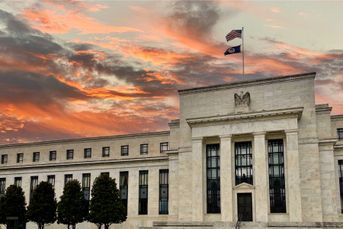ESG investors get set of global reporting standards

The voluntary framework published by the International Sustainability Standards Board paves the way for companies across jurisdictions to report uniform climate and sustainability information.
ESG investing passed a milestone on Monday as the first-ever set of global reporting standards was unveiled, paving the way for companies across jurisdictions to disclose uniform climate and sustainability information.
The voluntary framework, published by the International Sustainability Standards Board, is intended to reshape ESG reporting norms in much the same way the International Financial Reporting Standards did two decades ago. The ISSB framework will also affect the information companies include in their financial reports, so that these better reflect environmental, social and governance risks.
The absence to date of a global ESG reporting framework has resulted in “a very confusing landscape” for businesses and their investors, Sue Lloyd, vice chair of ISSB, said in an interview. With the new standards, “investors can be confident that, when they compare companies, they’re doing that on a like-by-like basis when they’re making their investment decisions.”
The standards, which comprise separate frameworks for climate and sustainability reporting, mark the culmination of a years-long effort. The acronym ESG was first coined back in 2004 by a team affiliated with the United Nations. In the years that followed, however, regulators were largely missing in action and the label got attached to an ever-larger number of financial products and activities, ultimately morphing into a multitrillion dollar business.
In recent years, regulators in Europe, the US and Asia have tried to bring order to a market in which greenwashing — the mislabeling of ESG products — had become a widespread concern. The European Union has created a taxonomy and was also the first to unveil an ESG rulebook for investors. It’s now moving forward with regulations for companies, as part of a complete package that ultimately redraws the lines of capitalism.
In the U.S., the Securities and Exchange Commission is working on getting companies to report their carbon footprints. Those efforts include requiring that firms report absolute emissions data, which has met opposition from JPMorgan Chase & Co., Exxon Mobil Corp., Chevron Corp. and Goldman Sachs Group Inc., among others. Hostility toward ESG from the Republican Party has also complicated efforts to formulate ESG rules in the U.S.
By one measure, global ESG regulations have soared 155% over the past decade, according to ESG Book, a sustainability data and technology firm. Lloyd says that “paradoxically,” there is “quite a lot of information around.” But that information exists within “a very confusing landscape,” because of the “frameworks with different approaches, different areas of focus,” she said.
[More: The Bud Light case for ESG]
REACTIONS
Brian Moynihan, CEO of Bank of America, called the ISSB standards “an important first step toward developing a global baseline of comprehensive market-driven sustainability standards.” The development means “that capitalism and the markets can continue to focus on long-term, sustainable development,” he said.
Zhongming Zhu, vice minister of China’s Ministry of Finance, said “China is fully committed to supporting the work of the ISSB and the development of global sustainability disclosure standards.”
Jane Goodland, head of sustainability at the London Stock Exchange Group, said ISSB has “delivered the practical, flexible and interoperable global baseline for corporate sustainability reporting that we urgently needed” and added that “we encourage policymakers to adopt the ISSB’s new standards as this global baseline by 2025.”
Gerald Podobnik, CFO at the investment bank, corporate bank and ESG at Deutsche Bank, said the standards should be viewed as a “toolbox to measure performance, and a catalyst to drive it. A chance to mitigate risk, and seize opportunities. A level playing field.”
Christopher J. Ailman, CIO of the California State Teachers’ Retirement System, said the new ISSB standards build on investor-focused efforts. “It is imperative we improve the sustainability-related financial information to help us manage the risks to our portfolio so we can protect the pensions of California’s public educators, and the ISSB standards will help us accomplish this goal,” he said.
Nicolette Bartlett, chief impact officer at CDP, called the ISSB standards an “important step,” Emissions reporting has been increasing “but not as much as we need it to,” she said.
Learn more about reprints and licensing for this article.








